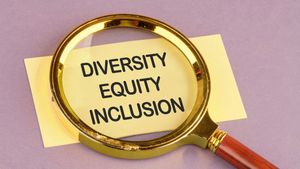Sure, you’re living your life, feeling good, taking care of yourself. But once in awhile it would be nice to sit down and talk about what’s on your mind. Including your HIV status. Isn’t that what friends are supposed to do? Apparently not always. Because you’re talking and they’re running. Away.
Feeling like the people in your life don’t get what it’s like to live with HIV? And don’t want to try? You are not alone. But the deal is, you might have to do some work to give them a hand. Here are some ideas:
Don’t let yourself fall into the victim mentality. If you focus on what you don’t have, including the understanding of people who are in avoidance mode, then you place yourself at risk for falling into a hopeless place yourself. Take stock of what’s going well in your life, starting with your own inner resources. Decide to see possibilities.
And don’t let anyone try to make you the one with the problem. The burden of proof here is not with you. If people you care about can’t and won’t understand what you are living with, so be it. But refuse to allow them to tell you the problem is all yours, you are “giving up,” or “too needy,” or you “need to get over it.” So let me add: some of us are thinkers, some of us are feelers, some of us will do anything to avoid uncomfortable feelings. It’s their problem. A shame, right?
Stay hopeful. Accepting other people’s limitations frees you up to put your energy into what’s possible. So start where they are instead of where you want them to be. It may take time, and patience, and a lot of encouragement – from you – to help the people in your life to be more understanding. You may not see the progress you want, but to “fight fire with fire” – and respond to their lack of understanding by putting up your own wall – is only going to result in a thicker wall at a time when you all need each other. Communication works both ways. And so does compassion.
Show, and tell. Educating the people in your life about what it’s like to live with HIV may be an ongoing process. They may need some consistent help from you in understanding your condition and how it affects your life. Over time, you may be help them to gain a realistic perspective on what your chronic condition means for your life, and your life together, and not simply as a “catastrophe.” Knowledge is power.
Remember: you are not alone. In a perfect world, the people who are closest to you should also be the most supportive. They should do everything humanly possible, and beyond, to understand what you are going through. And be there every step of the way. Yes, they should. But if they can’t, then are there other people who can?
Look around for people in your life who can and will make an emotional connection with you. And stick together.






































































